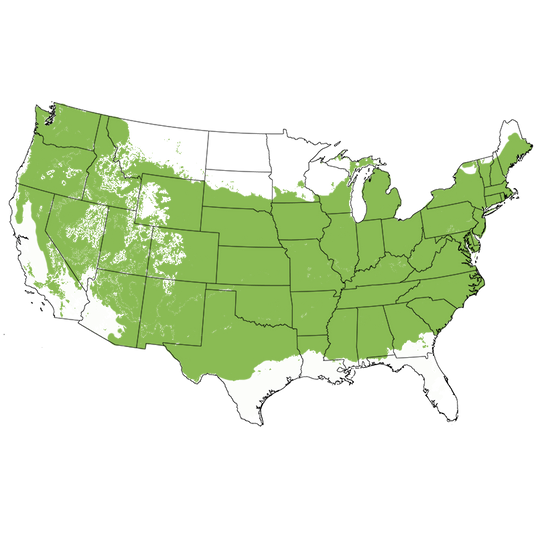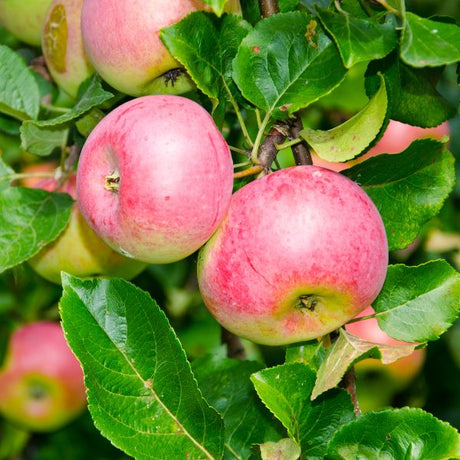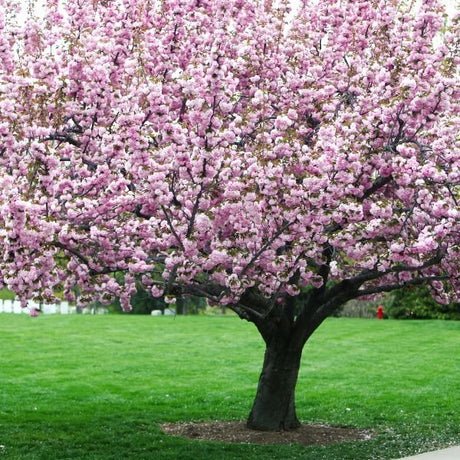Corithian Rose Flowering Peach Tree
Prunus persica 'Corinthian Rose'
- Stay Protected with Plant Sentry ™
Corithian Rose Flowering Peach Tree is backordered and will ship as soon as it is back in stock.
Plant Sentry™
Plant Sentry™

Plant Sentry™ Protected
Your order is protected by our compliance system that:
- Prevents restricted plants from shipping to your state
- Ensures plants meet your state's agricultural requirements
- Protects gardens from invasive pests and diseases
Delivery and Shipping
Delivery and Shipping
Delivery and Shipping
Fast, Safe Plant Delivery
Ships in 3-4 business days • Tracking provided • Weather protected
| Under $50 | $9.99 |
| $50 - $99.99 | $14.99 |
| $100 - $149.99 | $16.99 |
| $150+ | $24.99 |
✓ Zone-specific timing • ✓ Professional packaging • ✓ Health guarantee
Understanding Plant Options
Nature Hills offers plants in two main formats:
- Container Plants: Grown in pots with soil, sized by container volume and plant age
- Bare Root Plants: Dormant plants without soil, sized by height measurements
Container Plant Sizes
Container sizes indicate plant age and growing capacity rather than liquid volume equivalents. Our containers follow industry-standard nursery "trade gallon" specifications, which differ from standard liquid gallon measurements.
Young Plants (6 months to 18 months old)
| Container Size | Actual Volume | Metric Equivalent |
|---|---|---|
| 2" x 2" x 3" | 0.18 - 0.21 dry quarts | 0.20 - 0.23 dry liters |
| 4" Container | 0.31 - 0.87 dry quarts | 0.35 - 0.96 dry liters |
| 4.5" Container | 0.65 dry quarts | 0.72 dry liters |
| 6" Container | 1.4 dry quarts | 1.59 dry liters |
| 1 Quart | 1 dry quart | 1.1 dry liters |
| 5.5" Container | 1.89 dry quarts | 2.08 dry liters |
Established Plants (18 months to 2.5 years old)
| Container Size | Actual Volume | Metric Equivalent |
|---|---|---|
| 2 Quart | 2 dry quarts | 2.2 dry liters |
| #1 Container | 2.26 - 3.73 dry quarts | 2.49 - 4.11 dry liters |
| 5" x 5" x 12" | 3.5 - 4.3 dry quarts | 3.85 - 4.74 dry liters |
Mature Plants (2-4 years old)
| Container Size | Actual Volume | Metric Equivalent |
|---|---|---|
| #2 Container | 1.19 - 1.76 dry gallons | 5.24 - 7.75 dry liters |
| #3 Container | 2.15 - 2.76 dry gallons | 8.14 - 12.16 dry liters |
Large Plants (3-5 years old)
| Container Size | Actual Volume | Metric Equivalent |
|---|---|---|
| #5 Container | 2.92 - 4.62 dry gallons | 12.86 - 20.35 dry liters |
| #6 Container | 5.25 - 6.01 dry gallons | 23.12 - 26.42 dry liters |
| #7 Container | 5.98 - 6.53 dry gallons | 26.34 - 28.76 dry liters |
Bare Root Plants
Bare root plants are sold by height from the root system to the top of the plant. Plants may exceed minimum height requirements.
Common Sizes:
- Trees: 1 foot, 2 feet, 3 feet, 4 feet, 5 feet, 6 feet
- Shrubs & Perennials: 1 foot, 18 inches, 2 feet
Important Notes
Container Volume Specifications
- Trade Gallon Standard: Our containers follow industry-standard "trade gallon" specifications established by the American National Standards Institute (ANSI Z60.1) for nursery stock
- Volume Variations: Actual soil volume may vary due to plant root systems and growing medium settlement
- Age Indicators: Container size primarily indicates plant age and maturity rather than liquid volume equivalents
Growing Conditions
- Plant size can vary based on variety and growing conditions
- Container size helps indicate plant maturity and establishment level
- Larger containers generally mean more established root systems and faster landscape establishment
Seasonal Availability
- Bare root plants are available seasonally when dormant
- Container plants are available throughout the growing season
- Specific varieties may have limited availability in certain sizes
Questions?
For questions about specific plant sizes or availability, please contact our plant experts who can help you choose the right size for your landscape needs.
Plant Highlights
Corithian Rose Flowering Peach Tree highlights at a glance!
Specifications
Specifications
-
Brand
-
Botanical Name
-
Growing Zones
-
Mature Height
-
Mature Spread
-
Sun ExposureFull Sun
-
Moisture
-
Soil
-
Growth RateMedium
-
Fall Color
-
Pollinator Friendly
-
Fragrant
-
Pruning Time
-
Bloom PeriodEarly Spring
-
Harvest Time

Growing Zones 5-8
Showy double blooms, the Corinthian Rose Flowering Peach Tree (Prunus persica 'Corinthian Rose') is an ornamental flowering version of the edible Peach tree! Featuring a unique upright skinny oval form for a punctuation mark in the landscape that looks fantastic in spring, summer, fall, and winter!
What is even more striking about this fruitless, flowering ornamental? The columnar form produces double bright-pink flowers that pollinators adore, as well as gorgeous purple foliage! Scented springs, unique form, and space-saving landscape décor rolled into one!
Corinthian Rose Peach trees are hardy throughout USDA growing zones 5 to 8, and grow to a tidy 20-25 feet in height at maturity and only spread to 10-15 feet wide. Pollinators and hummingbirds seek out these rosy-pink blooms that look like gorgeous pompoms!
Planting and Application:
Corinthian Rose's unique form and foliage lend themselves to the elegant framing of an entrance or driveway or even the start of a path to your backyard! Columnar flowering trees are space-saving focal points, wonderful screening plants, and backdrops for a mixed shrub border
Flowering Peach trees dress up a seating area in your backyard while lightly screening off your entertaining areas from the neighbors. Small-sized landscapes and established gardens can all accommodate a few of these trees! These even work fantastically as street trees and for anchoring the corner of your home's foundation planting!
- Gorgeous Scented Double Bright Pink Blooms
- Upright Oval Columnar Form
- Lovely Foliage & Faster Growth
- Space-Saving Ornamental Flowering Trees
- Backdrops, Specimens & Focal Points, Screening & Space-Saving Décor
#ProPlantTips for Care:
Flowering Peaches need full sun and well-drained soils best. Any enriched type of soil is best and these trees appreciate a 3-4 inch layer of arborist mulch to hold in moisture and insulate the roots from heat and cold. Prune after bloom to control size or to keep an open canopy for these fairly fast-growing trees, but these trees need minimal pruning to maintain the interesting upright form!
- Full Sun
- Well-Drained Enriched Soil
- Moderate Moisture Needs
- Prune After Flowers Fade
- Non-Fruiting Columnar Form
Order your own Corinthian Rose Flowering Peach trees as the answer for all the beauty of a Peach tree without the fruit! Any sized garden can enjoy these fantastic double, pink blossoms! Available now at NatureHills.com!












